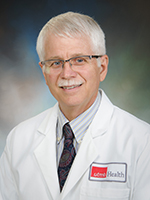NIH T32 Training Program: Training Physician-Scientists in Emerging Infectious Diseases
Program Information
Program Overview
Two years of translational research training under the mentorship of more than 25 accomplished MD and PhD faculty members Scientific and career mentorship through a structured team science framework Instruction in key areas including:
- Research design, data analysis, and biostatistics
- Field epidemiology and outbreak investigation
- Clinical and research biocontainment and biosafety
- Responsible conduct of research
- Scientific writing and grant preparation
- Managing a dual clinical-research career
Training and Mentorship
- Trainees choose their research focus and primary mentor
- Intensive career mentorship through the individualized Multidisciplinary,Interprofessional Mentorship Team (iMIMT)
- Opportunities for international research collaboration
- Support for securing an NIH Physician-Scientist Career Development Award
- Mentorship in transitioning to an independent faculty position
Eligibility and Application
- Open to physicians completing or who have completed an ACGME-certified residency or fellowship
- Applicants must be U.S. citizens or permanent residents
- One trainee per year will be selected for a two-year appointment
- Position: 2-year appointment as Instructor at UTMB; Protected research time with limited clinical responsibility (80% research, 20% clinical)
- To apply, candidates should send a CV and a one-page cover letter detailing their experience, research interests, and career goals to Dr. Peter Melby
Meet the Scholars
Program Leadership

Peter C. Melby, MD
Director
UTMB Center for Tropical Diseases
About Me
Dr. Melby joined UTMB in 2010 as Professor of Internal Medicine in the Division of Infectious Diseases and Director of the UTMB Center for Tropical Diseases. His research program is related to the immunopathogenesis of parasitic diseases, with a particular focus on leishmaniasis. His laboratory has been involved in vaccine development, studies to determine immunopathological mechanisms of disease, studies to define the impact of malnutrition on innate immunity and visceral leishmaniasis, and drug discovery. His interest in tropical diseases and the neglected diseases of resource-poor developing countries started thirty years ago when he first worked overseas in a hospital laboratory in rural Egypt. He subsequently returned to the U.S. to attend medical school at the University of Colorado and then went on to complete my residency in Internal Medicine at the University of Missouri, a research fellowship in the Laboratory of Parasitic Diseases at the National Institutes of Health, and a clinical infectious diseases fellowship at the University of Texas Health Science Center, San Antonio. He is active in the clinical practice of infectious diseases and in the teaching of medical and graduate students, as well as clinical residents and fellows.
Research
Publications
Contact Us

Peter C. Melby, MD
Director
UTMB Center for Tropical Diseases
About Me
Dr. Melby joined UTMB in 2010 as Professor of Internal Medicine in the Division of Infectious Diseases and Director of the UTMB Center for Tropical Diseases. His research program is related to the immunopathogenesis of parasitic diseases, with a particular focus on leishmaniasis. His laboratory has been involved in vaccine development, studies to determine immunopathological mechanisms of disease, studies to define the impact of malnutrition on innate immunity and visceral leishmaniasis, and drug discovery. His interest in tropical diseases and the neglected diseases of resource-poor developing countries started thirty years ago when he first worked overseas in a hospital laboratory in rural Egypt. He subsequently returned to the U.S. to attend medical school at the University of Colorado and then went on to complete my residency in Internal Medicine at the University of Missouri, a research fellowship in the Laboratory of Parasitic Diseases at the National Institutes of Health, and a clinical infectious diseases fellowship at the University of Texas Health Science Center, San Antonio. He is active in the clinical practice of infectious diseases and in the teaching of medical and graduate students, as well as clinical residents and fellows.
.png?sfvrsn=ef58dc55_1)
.png?sfvrsn=715cdc55_1)

